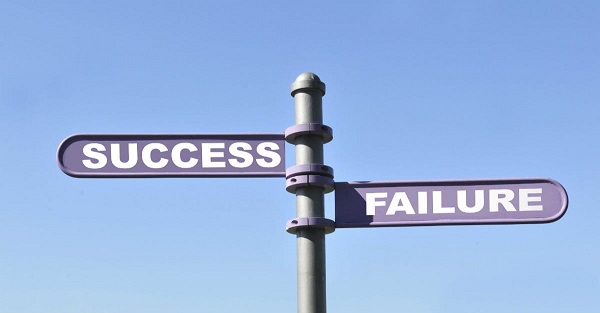“Success is not final, failure is not fatal: It is the courage to continue that counts.”
– Winston Churchill
Thomas Edison. Michael Jordan. JK Rowling.
They are all known for achieving worldwide success yet not everyone knows that, they too, have experienced monumental failure.
The Path to Greatness
In life, we all go through challenges and hardships that will make us think and feel we have failed. But it is our attitude and how we deal with failure that counts.
“Is it really the end of the road for me?” you might ask.
Most likely, it is not. It may only be a temporary setback. It may be a roadblock that you need to find a way to get through.
Michael Jordan was cut out from his high school team and had missed thousands of shots. Yet he persevered and came to be one of the best (if not the best) NBA players the world has ever seen.
When you think you have failed in your career, here are some steps from an executive coach in Dubai that may help you get back on the path to success:
1. Accept Reality
Start by acknowledging that failure is a part of life. JK Rowling, in her Harvard address, even credits her stellar success to the failures she has gone through.
Do not think that you are the only one who is going through hardships. Mere mortals make mistakes. No one is exempt from experiencing a letdown. Know that nobody is perfect, and people will stumble and fall at least once in their lives.
When you have the strength and pluck to accept that you have made a mistake, then you have made the step towards pulling yourself up again. Own up to your own missteps and blunders and be accountable for them.
2. View Things Differently
However monumental your “lack of success” may seem now, chances are, you will view it differently only if you have the courage to try and see your situation in a different perspective.
Before you wallow in the abyss of sadness, why not try to look at your situation differently? Wash the grit off your eyes that shows you how bleak and depressing it is to lose. Instead, focus and adjust your perception of things.
When you have learned to accept that failures do happen, then try to clearly see how things happened. Evaluate what didn’t go right. Check the steps you have taken and see where you could have done better.
Try to perceive the struggles you have as something that will make you stronger. Instead of viewing “failure” as a rock that weighs you down, consider it to be a rock that you can step on, on your way up to achieving better things.
3. Take Control
When you have accepted and adjusted your way of thinking, then it is time to take control.
This is your life.
You hold the reins and have the power to direct it in any direction you choose.
The world is huge and it offers you so many choices. If you have failed in this career, feel free to try out new things. Venture out of your comfort zone.
Pursue other dreams and ambitions. Learn new things, enroll in further education, pick up old hobbies, or take up new ones. The possibilities are endless. Do not confine yourself for you may find out that you may not be good in this career, but you are exceptional in another.
Learn from others.
Take inspiration from the many men and women who have met failure but stared it down and won over it. Seek executive coaching and career transition programs that can help you assess your strengths and weaknesses as well as identify your abilities, skills, and talents to get you the career you want.
Go to professional development workshops and accept help from professionals whose life work is to help people become the best version of themselves.
A Work in Progress
Failing in this or that is not the end of the world. Keep an open mind and heart that things may not always go your way; at least, not right away.
Know that you have the capacity to steer yourself to the right path and, with perseverance and guidance, you can reach the peak of success.
Having the courage to get back up after falling down is what truly matters.
AUTHOR BIO
Salma El-Shurafa is an experienced Executive Coach and founder of The Pathway Project. She is a Professional Certified Coach by the International Coaching Federation (ICF), a Certified Professional Co-Active Coach from The Coaches Training Institute (CTI) and a graduate of CTI’s Co-Active Leadership program.








